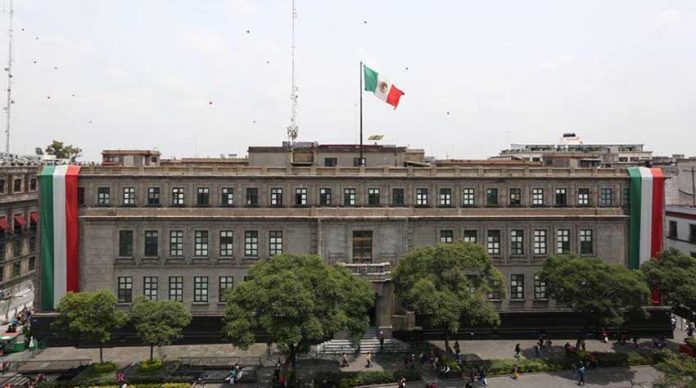A legislative proposal by Mexico’s ruling party to create an anti-corruption chamber in the Supreme Court (SCJN) and increase the number of justices from 11 to 16 is a ploy to enable President López Obrador and his government to control the court, an academic and opposition lawmakers say.
Raúl Mejía, an associate professor at the Center for Research and Teaching in Economics (CIDE), said the proposal is a way for the López Obrador administration to get an “effective majority in the court” because it would be able to appoint eight justices to the SCJN instead of just three.
He said the number of corruption-related cases doesn’t justify increasing the number of Supreme Court justices.
Mejía, a former SCJN official, added that if the government was able to stack the court with its own hand-picked justices, a situation would likely be created in which the “judicial counterweight to the Congress” is eliminated.
Citizens’ Movement (MC) Senator Clemente Castañeda said the government’s intent is to seize power in the court, while Emilio Álvarez Icaza, a senator not affiliated with any political party, called on the Morena party and López Obrador to give an assurance that the proposal isn’t an attempt to control the SCJN.
Another senator, Jorge Carlos Ramírez Marín of the Institutional Revolutionary Party (PRI), said the appointment of additional justices is “absolutely unnecessary” and would be a financial burden on the country.
Damián Zepeda of the National Action Party (PAN) was also critical of the Morena party proposal.
“A new chamber isn’t needed. It’s nothing more than a pretext to dominate the court by increasing the number of justices because if you have five new justices plus the two already appointed [by López Obrador], you’re just one away from having the majority with the president’s casting vote,” he said.
López Obrador will be required to make a third appointment to replace Justice José Fernando Franco, whose 15-year term will end in 2021.
The president yesterday distanced himself from his party’s proposal, saying that it was a matter for Congress rather than the executive branch of government.
“It’s a matter for the legislative power. My respectful opinion is that we don’t need more [judicial] apparatuses. What’s needed is to put an end to corruption from top to bottom,” he said.
Source: Reforma (sp)
